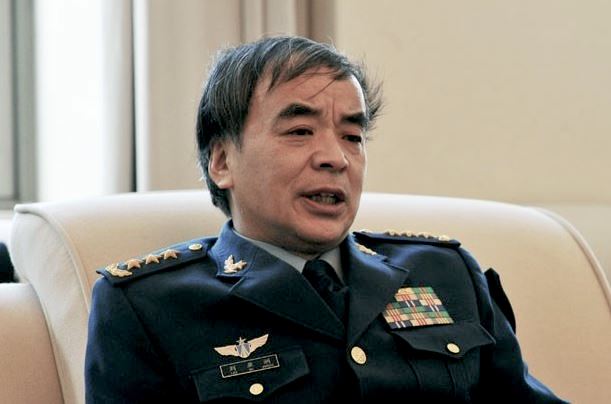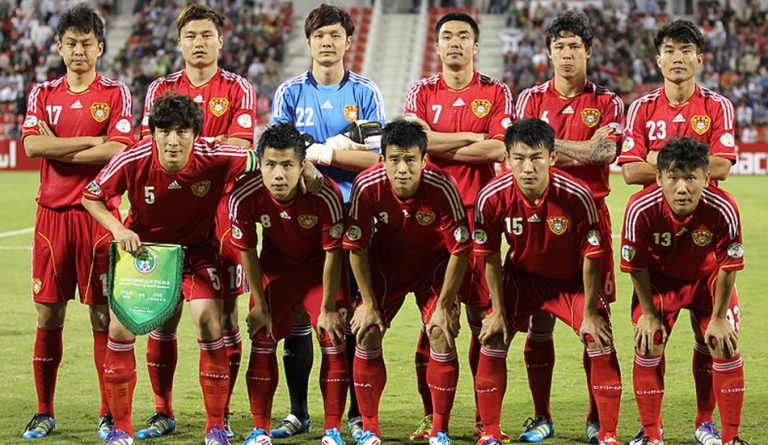Various semi-official criticisms of retired senior Chinese People’s Liberation Army (PLA) air force general Liu Yazhou have emerged in recent weeks, indicating that the officer may be or has already been subject to some kind of purge.
Liu, 70, was political commissar of the PLA National Defense University from 2009 to 2017 in addition to his rank as general. He is also the son-in-law of China’s former president Li Xiannian. He is known as a prolific writer and commentator.
Though Liu has made comments espousing the need for democracy in China, much more prominent have been his hawkish calls for the Chinese Communist Party (CCP) to strengthen its military position against the United States and Taiwan.
On April 12, Hong Kong’s pro-Beijing newspaper Sing Tao reported that Liu had been placed under investigation on suspicion of “serious violations of discipline and the law” — or the charge most CCP officials are labelled with in Xi Jinping’s anti-corruption campaign.
‘Harmful information’
A screenshot of an April 10 post allegedly published by a PLA retirement facility in Taiyuan city called upon cadres to “thoroughly investigate and clean out” all “harmful information” regarding Gen. Liu, including books and other literature. This was deemed of “extreme importance,” according to the notice.
Success
You are now signed up for our newsletter
Success
Check your email to complete sign up
According to Sing Tao, the PLA had issued an internal notice in February with similar wording referring to “Liu Yazhou’s harmful information.” In particular, the military was concerned about Liu’s “considerable influence” due to his seniority and familial ties.
SinoInsider, a risk consultancy specializing in Chinese elite politics, noted in an April 17 newsletter entry that Liu was the subject of criticism by several “semi-official leftist mainland websites” in mainland China from April 12 to April 15.
An April 12 piece by “Red Culture Net” lambasted Liu as a proponent of Western liberalism, saying that he intended to subvert the ruling position of the CCP by corrupting the PLA with ideas such as “humanism” and “human rights.” The piece called him the “number one traitor in the Chinese military,” further alleging that he advocated changing the PLA, which is under the formal command of the Communist Party’s Central Military Commission, to a nationalized army (as is the case with most countries) under the control of the Chinese government.
The article, by commentator He Lanfeng, said that Liu had denied the importance ofTaiwan to China’s “core interests,” and that he even supported Taiwan’s liberal-democratic political system.
Commentaries on the commentary produced by Red Culture Net appeared on the mainland Chinese website “Kunlun Strategy” on April 12 and April 13. In the April 12 piece, former professor at the PLA University of Logistics Liu Zhenqi (no relation of Liu Yazhou) praised Red Culture Net’s article for clearing out the “bad influences” of Liu Yazhou.
Kunlun Strategy’s April 13 commentary claimed that Liu Yazhou had engaged in “historical nihilism” and “crafted a theory of compromise and surrender” with regards to Beijing’s stance on Taiwan; among other things, Liu had dismissed the PLA’s ability to conquer the self-governing, democratic island.
A hawk labelled a dove?
Cai Xia, a Chinese scholar of Marxist theory who defected to the U.S., suggested in an April 12 tweet that the growing pressure on Liu Yazhou is further indication of Chinese leader Xi Jinping’s hardening stance on Taiwan and liberal dissent from within the Party.
But while the narrative coming out of semi-official Communist Chinese channels builds upon earlier indications that Liu Yazhou was in political trouble, many of the claims contradict what has been long known about the retired general’s views.
For example, the idea that Liu wants to decouple the PLA from the CCP’s leadership clashes with an October 2013 article he wrote saying that the Party should be careful to not lose the “ideological position” in its control over the military. He also claimed that the West was trying to use ideology to “bring down China.”
This followed the June 2013 release of Silent Contest, a propaganda film Liu had a major role in planning in his capacity as PLA National Defense University political commissar. The film describes a global conspiracy by the United States to overthrow the CCP.
As regards Taiwan, Liu had a study done in 2001 about the Battle of Kinmen island (which is held by Taiwan); according to statements he later made, he did this because then-CCP leader Jiang Zemin had said there would be war in the Taiwan Strait, and in his own view the PLA must be ready to fight the U.S. military.
“Far from supporting Taiwan’s liberal-democratic system, Liu is hawkish on Taiwan and does not oppose ‘reunification’ through arms,” SinoInsider wrote in its April 17 newsletter entry.
In late 2021, Australia-based Chinese dissident and jurist Yuan Hongbing, cited Party insiders in an interview with the Chinese-language edition of Vision Times that Liu had slammed Xi Jinping for lacking the ability to lead the CCP to victory in a “decisive battle” over Taiwan, and even requested that Xi be replaced with a different commander-in-chief.
The criticism painting Liu as a pro-West liberal, SinoInsider wrote, is likely intended to discredit him politically and remove him as a threat to Xi in the PLA. Such action is made more necessary by the West’s growing pressure on the CCP over its aggressive stance on Taiwan, which in turns puts pressure on Xi to escalate lest he be seen as a paper tiger.












